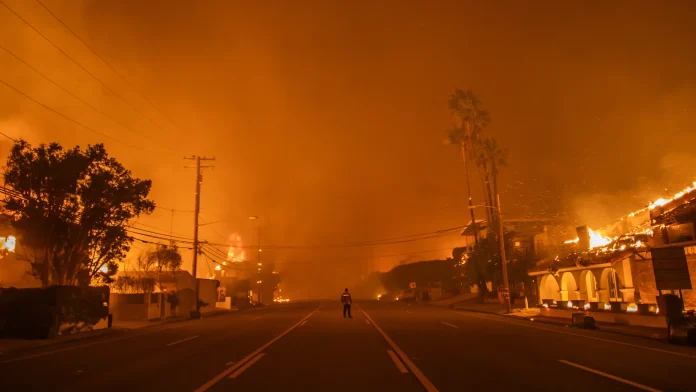Beware of Scams Targeting Los Angeles Fire Victims: What You Need to Know
In the aftermath of the devastating wildfires that have swept through Los Angeles and surrounding areas, affected residents face not only the challenges of rebuilding their lives but also the risk of falling victim to scams. Unfortunately, scammers often exploit the vulnerability of disaster victims, using deceptive tactics to steal money, personal information, and resources.
To protect yourself and your loved ones, it’s crucial to recognize the most common scams and take proactive steps to avoid them.
Popular Scams Targeting Fire Victims
- Fake Charity Scams
- How it Works: Scammers pose as representatives of charitable organizations, soliciting donations for wildfire relief. These fake charities often have names that sound legitimate or similar to well-known organizations.
- Red Flag: High-pressure tactics, such as requesting immediate donations via gift cards, wire transfers, or cryptocurrency.
- Imposter Contractors
- How it Works: Fraudulent contractors offer repair or cleanup services, demanding upfront payment but failing to deliver the promised work. They may also use substandard materials or perform unlicensed work.
- Red Flag: Lack of proper licensing, refusal to provide written contracts, or unusually low estimates.
- Government Assistance Fraud
- How it Works: Scammers pretend to be FEMA representatives or government officials, offering expedited disaster relief in exchange for personal information or fees.
- Red Flag: Requests for Social Security numbers, bank account details, or payments to “process” applications.
- Fake Rental Listings
- How it Works: Scammers post fake rental properties for displaced residents. They collect deposits or rent payments for properties they don’t own or that don’t exist.
- Red Flag: Landlords unwilling to meet in person or show the property before payment.
- Phishing Emails and Texts
- How it Works: Victims receive emails or texts claiming to be from official organizations offering aid. These messages often contain malicious links or attachments designed to steal sensitive information.
- Red Flag: Misspellings, generic greetings, and requests for personal or financial information.
How to Protect Yourself
- Verify Charities
- Use trusted resources like Charity Navigator or the IRS Tax-Exempt Organization Search to confirm a charity’s legitimacy.
- Donate directly through the charity’s official website rather than responding to unsolicited requests.
- Hire Licensed Contractors
- Verify licenses through the California Contractors State License Board (CSLB).
- Avoid paying in full upfront and insist on written contracts.
- Be Cautious with Government Communication
- FEMA and other government agencies do not charge for disaster relief services. Confirm their identity by contacting them directly through official channels.
- Research Rental Properties
- Always visit the property in person before making payments.
- Use reputable rental websites and beware of deals that seem too good to be true.
- Protect Personal Information
- Avoid sharing sensitive information via email, text, or phone unless you’ve verified the recipient.
- Be skeptical of unsolicited messages, and do not click on suspicious links.
What to Do If You’ve Been Scammed
- Report the Scam
- File a report with the Federal Trade Commission (FTC) or the California Attorney General’s Office.
- Contact the National Disaster Fraud Hotline at 1-866-720-5721.
- Alert Your Bank
- Notify your financial institution immediately to block fraudulent transactions or accounts.
- Monitor Your Credit
- Use free credit monitoring services or place a fraud alert on your credit report.
Final Thoughts
In times of crisis, communities often come together to support each other. Unfortunately, scammers prey on the chaos and vulnerability caused by disasters. By staying informed and vigilant, fire victims in Los Angeles can safeguard themselves from fraudulent schemes and focus on rebuilding their lives. Remember: when in doubt, verify before you trust.

